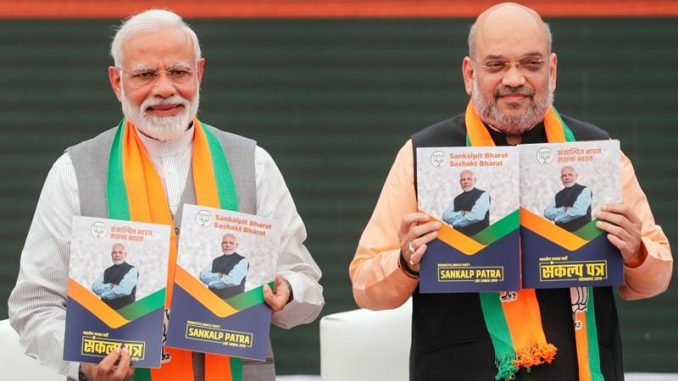
Context:
- On Monday, Home Minister Amit Shah brought two bills before the Rajya Sabha, regarding the change in the status of Jammu and Kashmir and bifurcation of state into two union territories. The widely appreciated step raises some less discussed concerns about the manner in which it was carried out.
- The State of Jammu and Kashmir is divided into two union territories: Jammu and Kashmir (with legislature) and Ladakh (without legislature).
- The state is stripped of its special status as autonomous state by revoking Article 370. This means all the provisions of Indian Constitution will apply on the now divided Union Territories.
- Article 35A, which emerges from Article 370, naturally becomes void. Now the people of India can have property rights in Jammu and Kashmir region.
The legal fiction:
- It would not be incorrect to say that the government used article 370 to destroy itself. Under the provision of clause 3 of Article 370, the president is empowered to declare the provisions of Article 370 inoperative with the recommendation of Constituent Assembly of the state.
- It is important to note that a constituent assembly is a constitution-making body, whereas a legislative assembly merely functions according to the procedure laid by the constitution. So the evening up the constituent assembly with the legislative assembly raises a question.
- However, the Constituent Assembly (like the legislative assembly) was meant to represent the opinion of the people of the state. Since the state is currently under President’s rule, It leads us to a larger question: Can the governor, who is not an elected representative but merely an agent of the centre, be equated to the legislative assembly under the provisions of the Article?
- Similarly, Article 3 of the Indian Constitution says, a bill which seeks to change the name or alter the area of a state must be referred to the Legislature of the concerned state by the President. In the present case of bifurcation of the state of J&K into two union territories, this basic principle of federalism is not properly followed.
On the ground:
- The conflations of legal definitions, however, are of far less significance than the moral burden that the decision bears by the virtue of its exercise. Not only the people of the state were kept in dark about a decision which they are the subject of, but the leaders of two major parties of the state were also put in house arrest. The state has been cordoned off by the forces and the bill has been laid before the parliament in a very surreptitious manner.
- The genuine intention of the government, of assimilation and development of a hitherto isolated region, is in moral jeopardy due to the manner of implementation. It further questions its legitimacy of the whole process in the international community.
- The strategic significance:
- The decision should also be viewed as an important strategic development against the backdrop of U.S. President Trump’s recurring statements on his desire to mediate on Kashmir. Since the special status of the state is revoked, it sends the message that there is no disputed area to mediate. Further, Washington has recognized the decision as ‘India’s internal matter’, which is a clear hard hit to Pakistan.
Conclusion:
- The abrogation of Article 370 and 35A is winning move for the government both in internal and international politics. The move will most likely be challenged in the Supreme Court for its validity. In the meantime, to tackle the rage and frustration of Kashmiri people effectively and replace the separatist mindset with that of development should be the government’s top priority.
- This drastic development can only be judged by its outcomes. It is yet to see if the step will bring the region to mainstream India or it will further intensify separatism on the ground level. The following decades will be the testimony of its success or failure.

Leave a Reply
You must be logged in to post a comment.